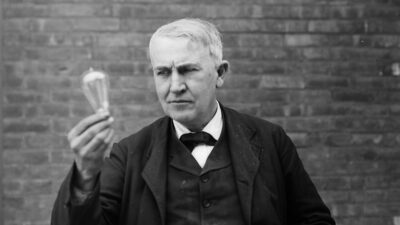 The idea is not to turn failure into success, per se, but to be open to what our failures have to teach us about who we are and who we aim to be. There may be a “success” inside the failure that you’re not seeing…
The idea is not to turn failure into success, per se, but to be open to what our failures have to teach us about who we are and who we aim to be. There may be a “success” inside the failure that you’re not seeing…
- Failing big can mean you took a big risk.
Failing at something may mean that you extended yourself beyond your comfort zone. You did something you weren’t familiar with doing; or you tried to do something you had never done before. Congratulate yourself on making the effort. What do you know now that you didn’t know before? Is it something you want to try again? Do you need to reexamine your assumptions? Get help? Take more time? Take a different approach?
- Failing can indicate that you’re doing something against your will.
Sometimes we do something because others encourage us to do it, or it’s something we feel we should do; but it’s not what we really want to do. Failing is the feedback that wakes us up and asks: what are you doing? Why are you doing this? What was my reason for doing this in the first place? Was the reason for your failure that you didn’t put your heart into the effort? Maybe it’s simply the wrong thing for you to do.
That’s good information.
- Failure can indicate you’re ahead of your time.
One of the hardest kinds of failure is when you’re enthusiastic and excited about an idea – that no one seems to share. I, for instance, wrote a speech called “The ‘F’ Word – The Positive Aspects of Failure” more than ten years ago. I saw then that society’s hyper focus on success was blinding us from benefiting by learning what didn’t work. When other people don’t understand what you’re doing, or tell you that your idea is dumb, or wrong, it just may be that they haven’t caught up with you yet. Don’t let other people’s indictments steer you away from what you know is true.
- Failure can lead you in a new direction.
The tried and true may lead you to success. But failure, if you’re open to looking at it, will most certainly lead you in a new direction. History is rife with stories of people who were trying to solve a particular problem and ended up discovering something completely unexpected. The same could be true for you. You may flop at “American Idol” but find that you make a great singing coach. Or when you throw your ceramics at the wall, you may find they make a lovely mosaic. Failure breaks things apart – leaving you the opportunity to put the pieces back together in a whole new way.
- Failure reminds us that certain things are beyond our control.
This is the biggest and hardest lesson for us to learn. There are times in our lives when we do try our hardest, give it our best, apply all of our interest and talent and still fail at the attempt. And sometimes, the more we try, the worse it gets. In this case, it’s important to realize that some things are beyond our control. We cannot always make things turn our right for ourselves and certainly not for others. Knowing in our hearts that we tried our best and gave it our all is all we can do. Acknowledging that is what allows us to go and try again. Failure in this case teaches us that we must focus on the process and the moment as much as the ultimate reward and outcome. Being present to the moment is the reward.
There are all sorts of ways to look at failure, but maybe it all really comes down to this: without knowing what didn’t work, how can you identify what did?
Remember: Thomas Edison, one of the greatest inventors of all time, said of his attempts to invent an electric light bulb, “I have not failed. I’ve just found 10,000 ways that won’t work.”
About the Author:

Susan E. Schwartz is a writer and consultant living in San Mateo, California.

